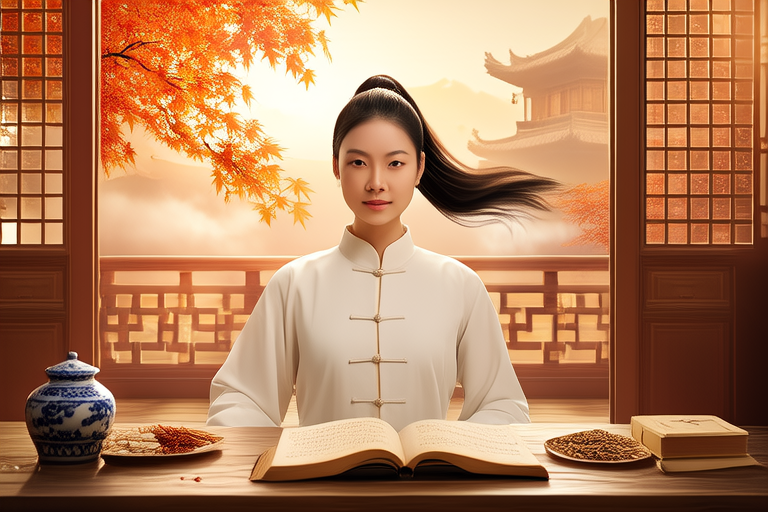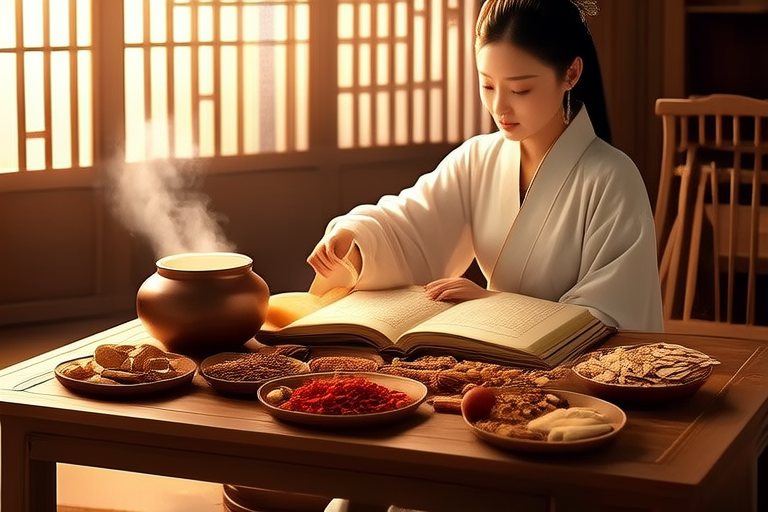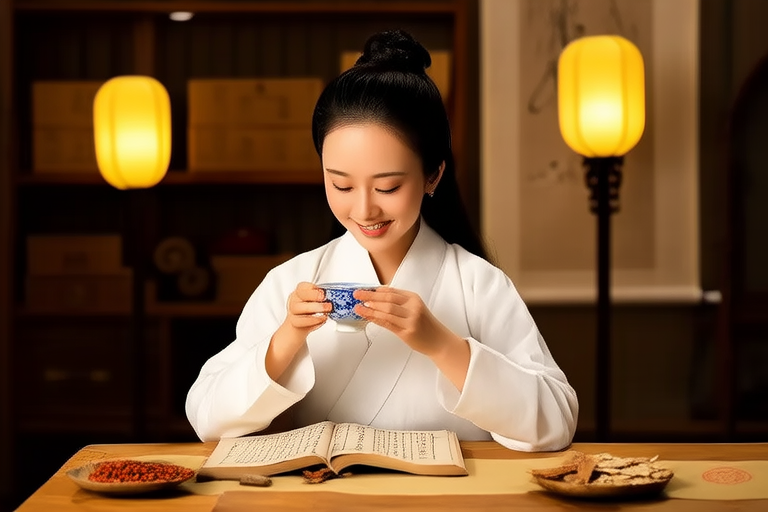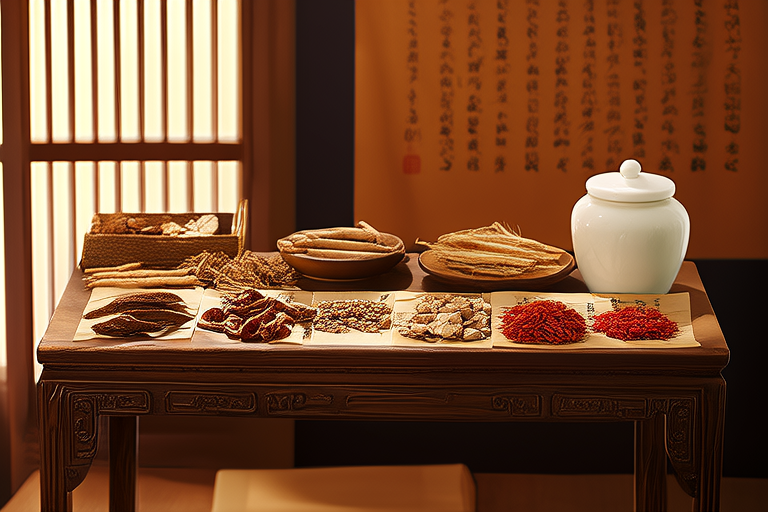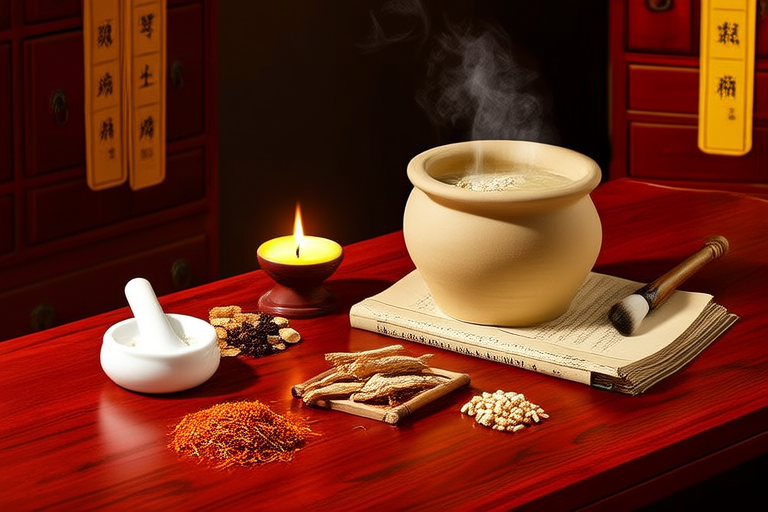Harmonizing Body and Mind: The Art of Health Preservation in Traditional Chinese Medicine
Introduction: A Holistic Approach to Health
In a world increasingly driven by fast-paced lifestyles and technological advancements, the ancient wisdom of Traditional Chinese Medicine (TCM) offers a refreshing perspective on health preservation. Rooted in thousands of years of observation and practice, TCM emphasizes the interconnectedness of body, mind, and environment. Unlike modern medicine, which often focuses on treating symptoms, TCM prioritizes maintaining balance and preventing illness before it arises. At its core, health preservation in TCM is an art—a delicate process of harmonizing internal energies and aligning them with external rhythms.
This article explores the key principles of TCM, including the balance of Yin and Yang, the role of Qi (vital energy), and the importance of achieving harmony between body and mind. It also delves into common practices such as acupuncture, herbal medicine, dietary therapy, and Tai Chi, explaining how they contribute to overall well-being. Additionally, we will examine the significance of seasonal adjustments and emotional health in TCM, offering insights into integrating these timeless practices into contemporary life for holistic health.
Key Principles of Health Preservation in TCM
Balancing Yin and Yang
Central to TCM philosophy is the concept of Yin and Yang—two complementary forces that represent the duality of existence. Yin embodies qualities such as coolness, stillness, and receptivity, while Yang symbolizes warmth, activity, and assertiveness. Health, according to TCM, depends on maintaining a dynamic equilibrium between these opposing yet interdependent forces. When Yin and Yang are out of balance, disharmony arises, leading to physical or emotional ailments.
For example, an excess of Yang might manifest as inflammation or hyperactivity, whereas a deficiency of Yin could result in dryness or fatigue. TCM practitioners assess the individual’s unique constitution and lifestyle to identify imbalances and recommend personalized strategies to restore harmony. These strategies may include dietary changes, herbal remedies, or mindfulness practices.
The Role of Qi: The Vital Energy
Another cornerstone of TCM is the concept of Qi (pronounced “chee”), often translated as vital energy or life force. Qi flows through the body along pathways known as meridians, nourishing organs, tissues, and systems. When Qi is abundant and flowing smoothly, the body functions optimally. However, blockages or deficiencies in Qi can lead to illness and discomfort.
Health preservation in TCM involves cultivating and protecting Qi through various means. Practices like acupuncture aim to unblock stagnant Qi, while breathing exercises and meditation enhance its circulation. Proper nutrition and restful sleep are also essential for sustaining Qi levels. By nurturing this invisible yet powerful force, individuals can fortify their resilience against disease and promote longevity.
Harmony Between Body and Mind
TCM views the body and mind as inseparable entities, each influencing the other. Emotional states such as stress, anger, or grief can disrupt physiological processes, just as physical ailments can affect mental well-being. Therefore, achieving harmony between body and mind is crucial for sustained health.
Practices like Tai Chi and Qigong combine gentle movements, deep breathing, and focused intention to cultivate inner peace and strengthen the connection between body and mind. Meditation and mindfulness techniques further support emotional regulation, helping individuals navigate life’s challenges with greater ease and clarity.
Common Practices in TCM for Health Maintenance
Acupuncture: Restoring Flow and Balance
Acupuncture is one of the most widely recognized TCM therapies, involving the insertion of fine needles into specific points along the body’s meridians. This practice aims to stimulate the flow of Qi, release tension, and address underlying imbalances. Acupuncture has been shown to alleviate conditions ranging from chronic pain and migraines to digestive disorders and insomnia.
By targeting both physical and energetic aspects of health, acupuncture exemplifies TCM’s holistic approach. Regular sessions can help maintain optimal Qi flow, prevent stagnation, and enhance overall vitality.
Herbal Medicine: Nature’s Pharmacy
Herbal medicine forms another pillar of TCM, utilizing plants and natural substances to support healing and balance. Each herb possesses unique properties that correspond to specific patterns of imbalance within the body. For instance, ginseng is prized for its ability to boost energy and strengthen immunity, while licorice root soothes inflammation and harmonizes other herbs in a formula.
Unlike Western pharmaceuticals, which often target isolated symptoms, TCM herbal formulas are carefully crafted to address the root cause of an issue while considering the individual’s overall constitution. This personalized approach ensures safe and effective treatment tailored to each person’s needs.
Dietary Therapy: Nourishing the Body
In TCM, food is considered medicine, and dietary therapy plays a vital role in health preservation. Foods are classified based on their thermal properties (e.g., warming, cooling) and flavors (e.g., sweet, sour, bitter), which influence their effects on the body. For example, ginger and cinnamon are warming foods that invigorate circulation, while cucumber and watermelon have cooling properties ideal for hot weather.
A balanced diet in TCM seeks to nourish Yin and Yang, support Qi, and promote digestion. Seasonal eating is also emphasized, encouraging individuals to consume foods that align with nature’s cycles. By adopting mindful eating habits, one can harness the healing power of food to sustain long-term wellness.
Tai Chi and Qigong: Movement as Medicine
Tai Chi and Qigong are ancient movement practices that integrate slow, deliberate motions with controlled breathing and mental focus. These disciplines not only improve flexibility, strength, and coordination but also cultivate inner calm and balance. Studies have shown that regular practice can reduce stress, enhance cardiovascular health, and even boost cognitive function.
As meditative forms of exercise, Tai Chi and Qigong bridge the gap between physical activity and mental serenity. They embody the TCM principle of harmonizing body and mind, making them invaluable tools for modern-day health maintenance.
Seasonal Adjustments and Emotional Well-Being in TCM
Living in Harmony with Nature’s Rhythms
TCM places great importance on adapting to seasonal changes, recognizing that humans are part of the natural world. Each season corresponds to different elements, organs, and emotions, requiring adjustments in lifestyle and self-care routines. For instance, spring is associated with growth and renewal, governed by the liver and gallbladder, while winter relates to introspection and conservation, linked to the kidneys.
By aligning daily habits with seasonal shifts—such as engaging in more outdoor activities during spring or prioritizing rest during winter—individuals can optimize their health and prevent seasonal imbalances. Dietary choices also shift accordingly; lighter, cooling foods are preferred in summer, while hearty, warming meals suit colder months.
Emotional Health: The Heart-Mind Connection
In TCM, emotions are closely tied to organ systems and overall health. Excessive or suppressed emotions can disrupt the flow of Qi and lead to physical symptoms. For example, unresolved anger may strain the liver, while prolonged worry can weaken the spleen.
To foster emotional well-being, TCM encourages self-awareness, expression, and regulation of feelings. Practices like journaling, creative arts, or spending time in nature can help process emotions constructively. Cultivating virtues such as compassion, patience, and gratitude further supports mental and spiritual growth.
Integrating TCM into Modern Lifestyles
While TCM originated in a vastly different era, its principles remain remarkably relevant today. In our fast-paced, high-stress society, the emphasis on prevention, balance, and holistic care offers valuable guidance for achieving sustainable health. Simple yet profound practices like mindful eating, conscious breathing, and regular movement can seamlessly integrate into daily routines.
Moreover, TCM invites us to reconnect with nature and honor our innate rhythms. Whether through seasonal cooking, morning stretches, or moments of quiet reflection, we can embrace the wisdom of this ancient tradition to nurture body, mind, and spirit.
Ultimately, the art of health preservation in TCM reminds us that true wellness stems from harmony—not only within ourselves but also with the world around us. By weaving these timeless practices into modern life, we pave the way for a healthier, more balanced future.






